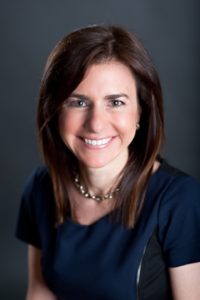June 1st, 2017
PITTSBURGH — The former executive director of the Commission on Enhancing National Cybersecurity has a new position as resident scholar at the University of Pittsburgh Institute for Cyber Law, Policy, and Security, effective today.
Kiersten Todt headed up the national cybersecurity commission, which helped carry out President Barack Obama’s Cybersecurity National Action Plan. Its members — top strategic, business and technical thinkers from outside government — worked to strengthen cybersecurity in both the public and private sectors while protecting privacy, maintaining public safety and economic and national security and empowering Americans to better manage their online safety.
Todt headed up the national cybersecurity commission, which helped carry out President Barack Obama’s Cybersecurity National Action Plan. Its members — top strategic, business and technical thinkers from outside government — worked to strengthen cybersecurity in both the public and private sectors while protecting privacy, maintaining public safety and economic and national security and empowering Americans to better manage their online safety.
Todt will be representing Pitt’s Cyber Institute in Washington, D.C.
“Kiersten is uniquely and exceptionally qualified to take on this new role,” said Pitt Chancellor Patrick Gallagher. “I have been fortunate to work at her side on President Barack Obama’s Commission on Enhancing National Cybersecurity. At each turn, Kiersten spearheaded key discussions and developments related to cyber policy and cybersecurity, and I am thrilled that she will continue to extend this track record of success at the University of Pittsburgh.”
Said Todt: “I will ensure that Pitt Cyber contributes to the federal cyber policy discussions and develops a cyber agenda that, in collaboration with ongoing activities at Pitt, positions the Institute to be a thought leader.”
As head of the Commission on Enhancing National Cybersecurity, Todt and her team developed recommendations, presented them to Obama, then briefed President Donald Trump’s transition team in January. Key suggestions included creating baseline standards for internet of things devices and training the current cybersecurity workforce in relevant skills while attracting new people to the cyber workforce. Todt says she was pleased that many of the recommendations were included in Trump’s cyber executive order signed May 11.
Todt says the creation of Pitt’s Institute for Cyber Law, Policy, and Security comes at an important time as cyber threats continue to change and evolve.
“The Institute will be looking at the issue from the policy and law side,” she said, “which is critical and necessary.”
“Kiersten is a rock star, and we are overwhelmed to have her as part of our team,” said David Hickton, founding director of Pitt’s Cyber Institute.
Prior to Todt’s work on the national cybersecurity commission, she was the president and managing partner of Liberty Group Ventures, LLC. She developed risk and crisis management solutions for cybersecurity, infrastructure, homeland security, emergency management and higher education clients in the public, private and nonprofit sectors.
Todt was a partner at Good Harbor Consulting and was responsible for building and managing the company’s North America crisis management practice. Clients included states and localities, large corporations, maritime entities and college and university systems. Before joining Good Harbor, she worked for Business Executives for National Security and was responsible for integrating the private sector into state and local emergency management capabilities.
Todt served on the U.S. Senate Committee on Homeland Security and Governmental Affairs, working for committee chair Joseph Lieberman, and was responsible for drafting the cybersecurity, infrastructure protection, emergency preparedness, bioterror and science and technology directorates of the legislation that created the Department of Homeland Security.
Before working in the U.S. Senate, Todt served in Vice President Al Gore’s domestic policy office and was responsible for coordinating federal resources with locally defined needs, specifically focusing on energy and housing issues. She was also the senior adviser on demand-reduction issues to Director Barry R. McCaffrey at the White House Office of National Drug Control Policy (ONDCP).
Todt graduated from Princeton University with a degree in public policy from the Woodrow Wilson School of Public and International Affairs. She holds a master’s degree in public policy from the John F. Kennedy School of Government at Harvard University and was selected to be a Presidential Management Fellow in 1999.
